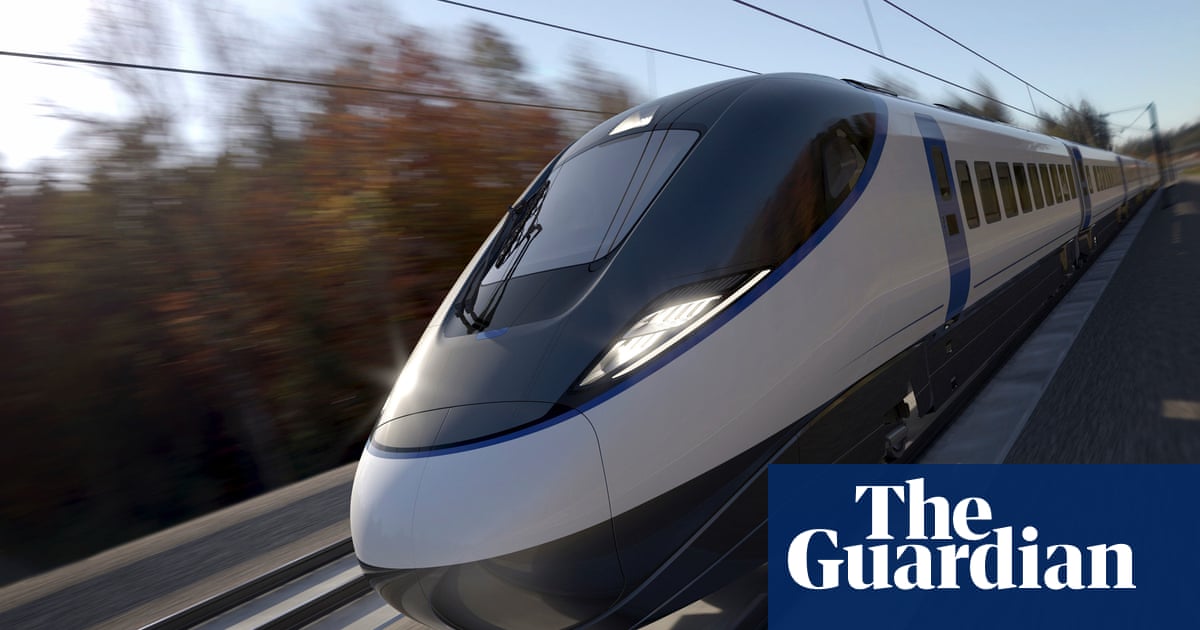
HS2 will be delayed by another two years and major roadbuilding schemes will be mothballed, ministers have confirmed, after soaring inflation added billions to the cost of transport infrastructure projects.
Ministers insisted they remained committed to Britain’s high-speed rail network scheme, but the budget constraints have cast further doubt over prospects for the rail project’s full implementation.
Parts of the HS2 line between Birmingham, Crewe and Manchester will be “rephased” by two years, meaning the line to Crewe may not be open until 2036, and Manchester not until 2043.
Trains may now not run all the way to and from central London until years later than planned as the government “takes time to ensure we have an affordable and deliverable station design” at Euston.
One of the biggest road schemes will also be kicked into the long grass as transport budgets face swingeing real-terms cuts from 2025. The flagship Lower Thames Crossing, a £7bn tunnel and road scheme linking Essex and Kent, will be deferred for at least two years, into National Highways’ next five-year phase of roadbuilding.
In a written statement to MPs, the transport secretary, Mark Harper, said other transport investment projects would also have to lapse in “difficult decisions”.
Active travel budgets, including cycling schemes in cities, will also be slashed for the next two years to a total of about £100m, compared with £850m in the last three years.
On HS2, Harper said: “We have seen significant inflationary pressure and increased project costs, and so we will rephase construction by two years, with an aim to deliver high-speed services to Crewe and the north-west as soon as possible after accounting for the delay in construction.”
Harper said that the government remained committed to HS2 trains eventually reaching Euston in central London, but was “prioritising HS2’s initial services between Old Oak Common in London and Birmingham Curzon Street to provide delivery of passenger benefits as soon as possible”.
Sources close to the project suggested that the completion of the line into London Euston could now be pushed further back until the 2040s, with the full capacity of the London terminus only required when the line to Manchester is open.
Under the last announced schedule, London-Manchester trains were due to start to run some time between 2035 and 2041.
Labour politicians and business groups expressed dismay and labelled the delay a false economy.
Louise Haigh, the shadow transport secretary, said: “Tens of thousands of jobs, and billions in economic growth are dependent on this project. Delays pile costs up in the long run – ministers now need to come clean on precisely how much their indecision will cost taxpayers and the north.”
The High Speed Rail Group, representing rail industry suppliers, said it was “alarmed” by the news, which it said would “only add to the total cost of the project. The cheapest way to deliver HS2 is quickly.”
John Dickie, chief executive at BusinessLDN, said: “Delaying construction of HS2 to save money is a false economy. Failing to invest now will likely increase costs over the long-term while also delaying the benefits for people and businesses across England.”
Andy Bagnall, chief executive for the industry lobby group Rail Partners, said: “While inflationary pressures make infrastructure projects more challenging, it is critical for Britain’s economy and meeting net zero targets that large sections of HS2 are not delayed, which will ultimately increase the overall cost.”
At least £2bn more is believed to now be needed for the first London-Birmingham stretch alone since the last official budgetary update in October, well above the contingency sums in the initial £44.6bn funding.
Harper said the government would “address affordability pressures to ensure the overall spending profile is manageable”. Designs for Euston station have already been ripped up once, at a cost of more than £100m.
Initially, the line will run to the new Old Oak Common station in west London, despite the widespread demolition and years of preparatory work already conducted around the eventual Euston terminus.
HS2 Ltd and the Department for Transport (DfT) had been working on cost-saving options under two tightly guarded initiatives, entitled Project Silverlight and Operation Blue Diamond.
Much of phase 1 of HS2, London to Birmingham, is well under way, with five of 10 tunnelling machines already underground in Warwickshire, London and Buckinghamshire. Half the Chiltern tunnels have been dug and significant work completed on the controversial Colne valley viaduct, cutting through the regional park west of London.
But senior civil servants and ministers told the Commons transport select committee in January that “tough decisions” would be needed, possibly putting other rail – or even wider transport projects – on hold if HS2 was backed.
The news will increase fears over wider rail investment. Harper told northern leaders earlier this week that the government remained committed to a high-level £96bn rail plan drawn up last year. But inflation may mean even less is likely to be built for that money than originally anticipated.
Campaigners welcomed news of the roadbuilding delays. Laura Blake of the Thames Crossing Action Group said: “Rather than delay, the government should put the scheme out of its misery and cancel it for good, rather than continuing to blight people’s lives.”
The DfT’s budget was frozen from 2025 in the autumn spending review, which could mean a significant cut in real terms.












